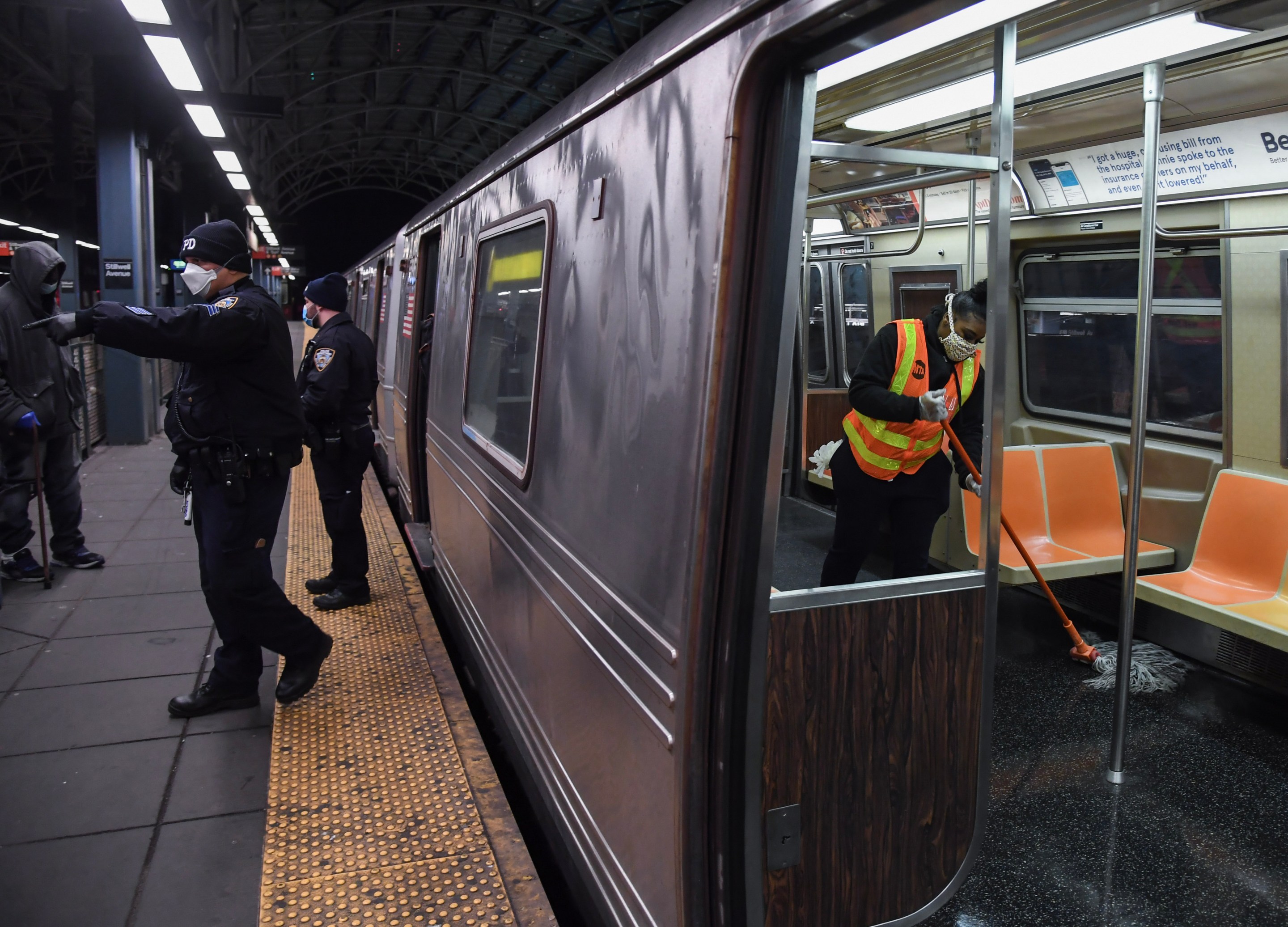A bummer 'til summer?
New York City Transit Interim President Sarah Feinberg told transit workers that overnight subway service won't be back until the summer at the earliest, according to NY1.
Feinberg's comments were part of the outlet's coverage of how the nightly 1 a.m. to 5 a.m. shutdown is affecting about 20,000 commuters, doubling some people's commute times after they were forced to switch from the subway to the bus. Given the many months until June 20, 2021, some advocates argue that the MTA should at the very least have learned enough from its cleaning regimen that it can do it in a smaller window than four hours.
"At this time, there should be sufficient information gleaned from the overnight closures to at the very least compress the closures and at best reopen and retain appropriate levels of cleanliness," said Lisa Daglian, the executive director of the Permanent Citizens Advisory Committee to the MTA. "The closures are more than an inconvenience, they are life-altering for people who need to ride during those hours — including essential workers."
The summer target date is the latest twist in the saga of the overnight subway shutdown, the first in the subway system's illustrious history and one that Gov. Cuomo ordered during the darkest days of the pandemic in May. At the time, Cuomo said that the shutdown was done to clean train surfaces and ensure homeless New Yorkers weren't living on trains. But over time, people have come to see the shutdown as "hygiene theater" that results in photo ops of cleaners scrubbing trains clean and MTA press releases about lemon-scented floors, but no actual benefit to rider health.
As the pandemic has ground on, the world has learned more about the way that coronavirus spreads, particularly that it does not live on surfaces to the degree that requires barring people from the subway for four hours every morning. Transit advocates have continuously suggested that the cleaning regimen is unnecessary in the face of the science on coronavirus. The shutdown has not been a cost saving measure either. While subway trains still run during the shutdown, the MTA had to set up additional bus service and even created new bus routes, and the transit agency has paid private contractors over $200 million over the life of the pandemic to work on the surface cleaning efforts.
Next summer seems far away, but Feinberg's prediction is a more optimistic one than anonymous "political insiders" recently predicted in a City and State poll of its readers, who are the movers and shakers of the city. That survey found that 68 percent of these machers didn't think that overnight subway service would be back before next November. The poll results suggest, at the very least, an unwillingness by City and State's powerful readers to fight the governor over an issue that's been a birthright for New Yorkers since the early 1900s and an economic boon for generations.
The return of the subway doesn't have to rely entirely on the whims of the governor. The state Senate passed a bill this summer that would require the subway to go back to full service once the current state of emergency ends, though a companion bill in the Assembly is still stuck in committee. (Gov. Cuomo can, of course, end the state of emergency whenever he wants, but that does not mean the subway would return to full service; that would require an additional act of the Big Dog.)
An MTA spokesperson said Feinberg's comments were nothing new for the agency.
"Sarah's comments were consistent with both what the governor and MTA leaders have said consistently," said the spokesperson, Tim Minton. "Overnight service will not return during the pandemic, the pandemic is ongoing, and it is unlikely to be over before the middle of 2021 at the earliest."






